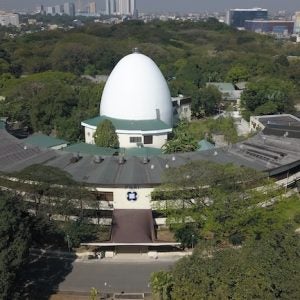Nigeria’s Federal Government on 15 July inaugurated the reconstituted Russian-Nigerian Joint Coordination Committee (JCC) on National Atomic Energy. Boss Mustapha, the Secretary to the Government of the Federation, said the reconstitution of JCC was to resuscitate the relationship between the two countries in cooperation for the peaceful use of nuclear energy. However, he recalled that within the framework of Nigeria’s bilateral relation with the Russian Federation, a number of Inter-governmental Agreements (IGAs) had been signed between the Nigeria Atomic Energy Commission (NAEC) and Russian State Nuclear Corporation Rosatom.
He said that the move was for cooperation in the design, construction and decommissioning of nuclear power plants on the territory of Nigeria. “In addition to these IGAs, two broad based Project Development Agreements (PDAs) were also signed,” he said. “As a follow-up, a number of meetings have been held in Nigeria, Russia and Austria to discuss the roles and responsibilities of the two parties involved in the implementation of the various elements of the agreements. “It is for this reason that the JCC for both Nigeria and the Russian Federation were constituted in the first instance.”
He added that the JCC members will be fully briefed on their tasks and responsibilities based on the Terms of Reference (TOR) they are all advised to be very conversant with. Mustapha said that JCC was put in place to allow for effective negotiations, particularly focused on ensuring that Nigeria was not subjected to any unfair trade agreements during the process of Nigeria’s engagement and discussions with Rosatom.
He listed other responsibilities of the JCC to include implementation of all agreements with the Russian Federation, to supervise the activities of the Joint Working Groups in the following thematic areas of nuclear power infrastructure, human resources management, financing and contracting scheme, among others.
In his acceptance speech on behalf of JCC, Dr Nazir Bello, Director, of the Nigerian Nuclear Regulatory Authority, promised to support the committee to achieve its mandate. “The terms of reference of the committee are to provide a broad framework for cooperation with Russia and ensure implementation of all agreements,” Bello said.
The terms of reference of the committee include:
- To provide a broad framework for Cooperation with the Russian Federation in the Peaceful uses of Atomic Energy.
- To participate in the design, construction, operation and decommissioning of both an NPP and multi-purpose research reactor.
- To ensure dynamic monitoring and implementation of all agreements with the Russian Federation.
- To supervise the activities of the Joint Working Groups in the following thematic areas: Nuclear Power Infrastructure; Human Resources Management; Financing and Contracting Scheme; Technical Aspect of Construction; Nuclear Technology Applications; and Nuclear Regulatory Framework.
- To ensure that Nigeria is not subjected to any unfair trade agreement during the process of negotiation with Rosatom.
- To work hard and to make sure that the interest of Nigeria is paramount, and to ensure that Nigeria plays its role in the implementation of various elements of the agreements.
- To have a unity of purpose during negotiation in order to ensure that Nigeria is not defrauded in the implementation of the agreement.
Speaking earlier, Acting Chairman/CEO of NAEC, Professor Yusuf Ahmed, noted Nigeria’s achievement in securing a seat for the 16th time as one of the four African countries on the 35-member Board of Governors of the International Atomic Energy Agency (IAEA). He added that NAEC has continued to reorientate the public opinion on nuclear energy and its applications in different human endeavours. He said: “Nigeria must begin to work towards diversifying her energy resource base to include nuclear in order to ensure the country’s energy security.”






